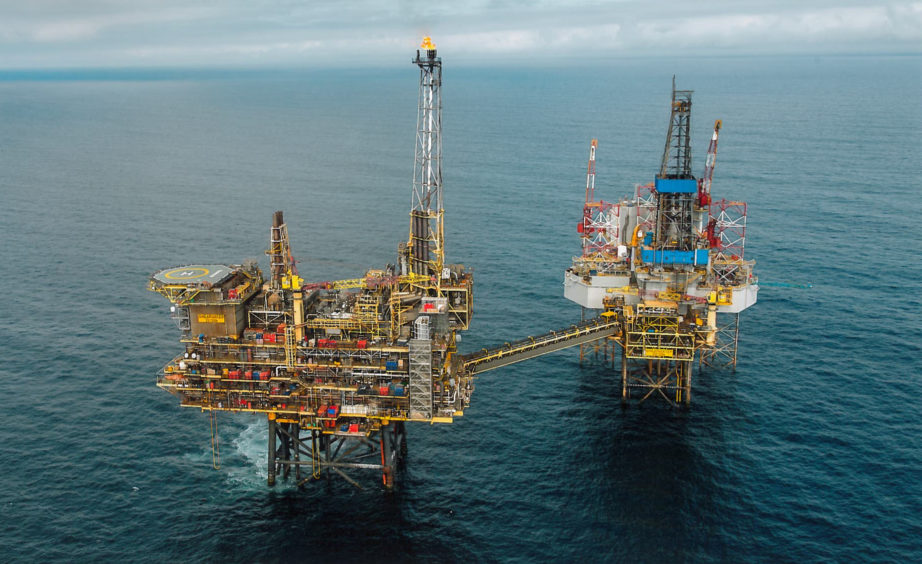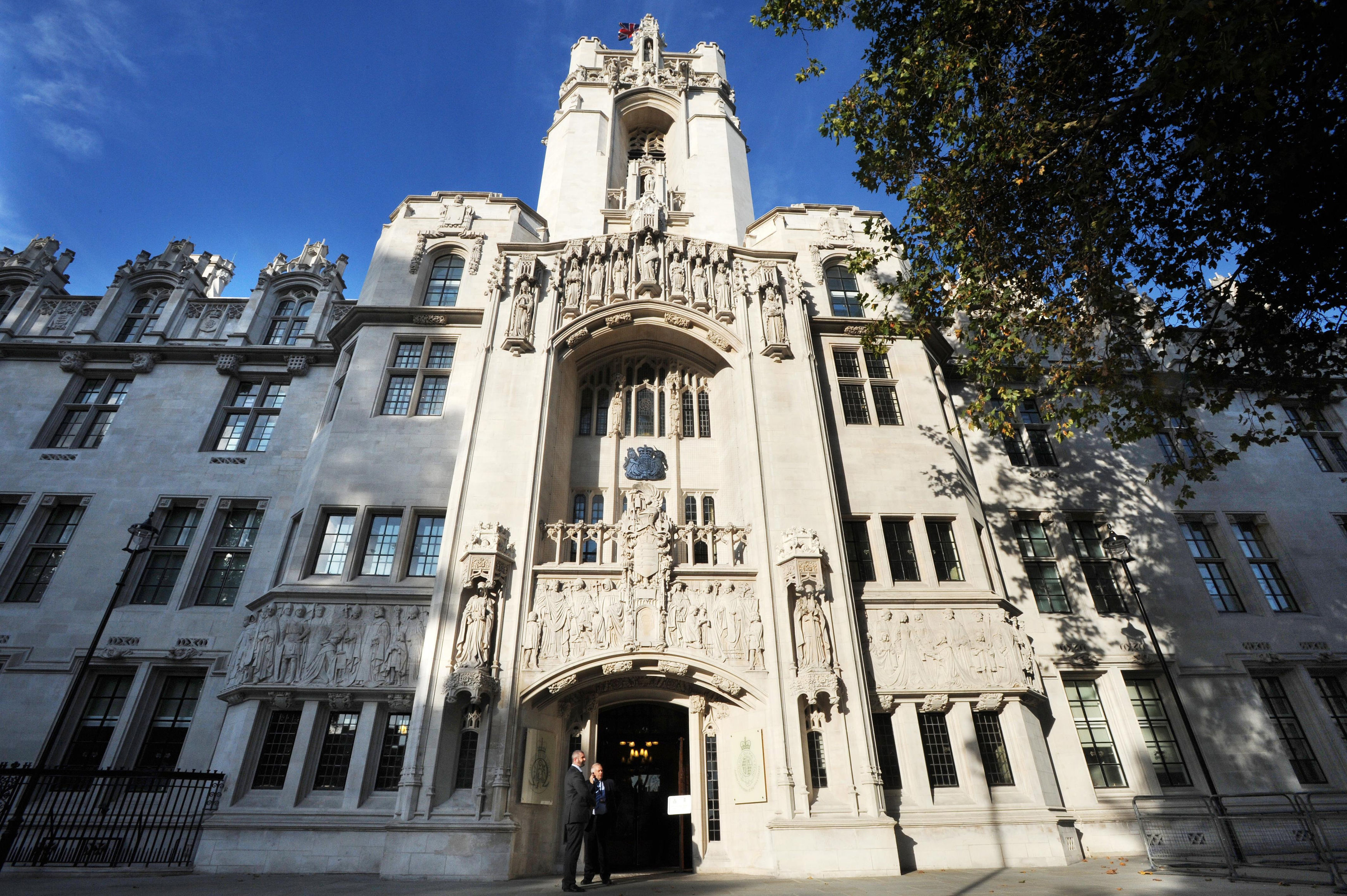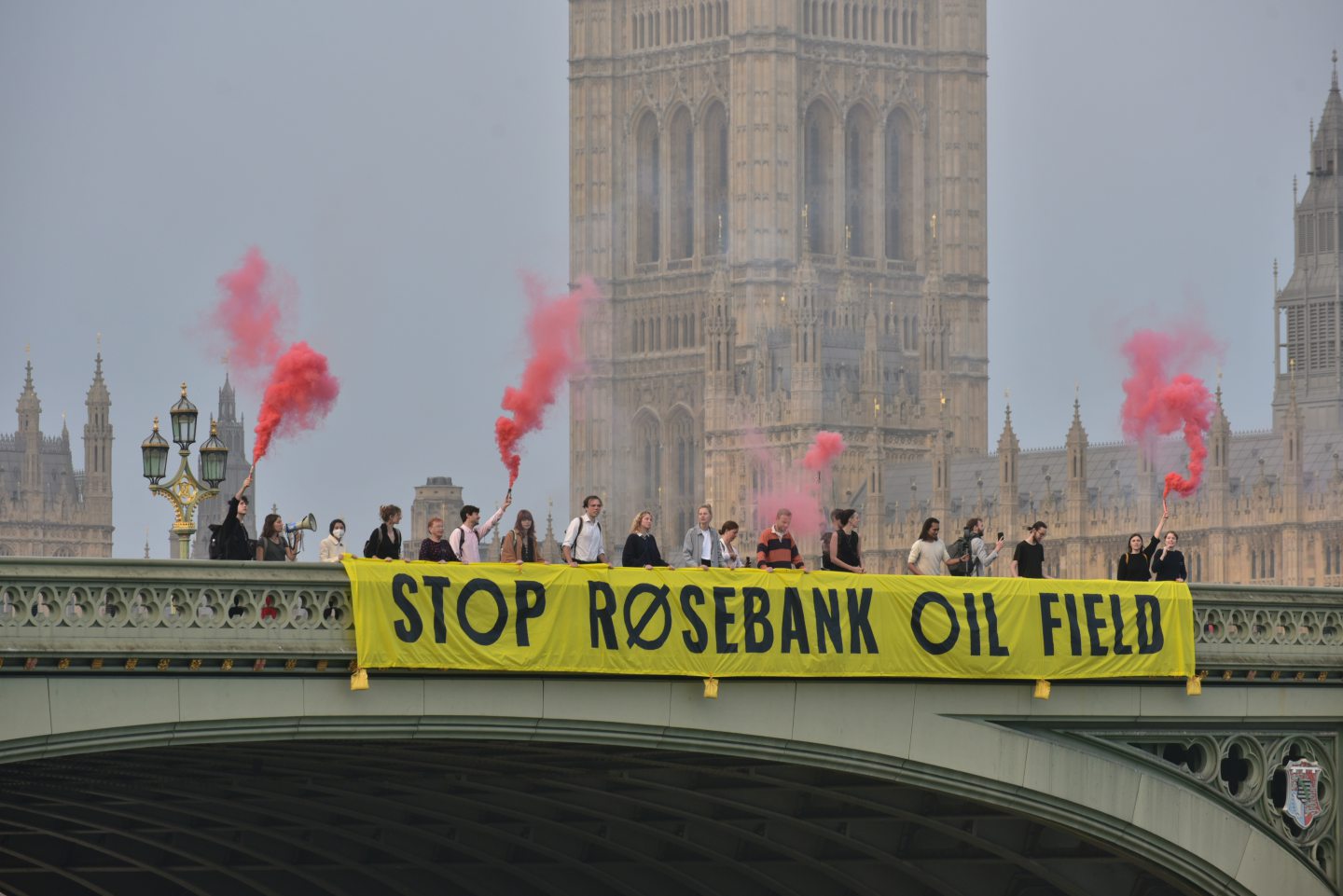
The UK Supreme Court is set to deliver its ruling in a pivotal case focused on downstream emissions which could impact North Sea oil and gas projects.
The Finch case will decide whether it was lawful for Surrey County Council to approve an onshore oil development without requiring an assessment of downstream emissions.
Legal experts say the outcome in the Finch case could change the assessment process for all fossil fuel projects in the UK, potentially requiring planning officials to account for downstream, or Scope 3, emissions in their approval decisions.
The Supreme Court’s decision is also likely to set a precedent for similar legal challenges against Shell’s Jackdaw project and Equinor’s Rosebank development.
What is the Finch case?
The Finch case stems from a decision by Surrey Council to extend drilling permission for a well at Horse Hill, near Gatwick airport.
Campaigner Sarah Finch argued the council should have to consider the emissions created from the oil’s end use (Scope 3), not just those from the drilling and extraction itself (Scope 1 and 2).
Judges in the High Court and the Court of Appeal have previously dismissed the case, but Ms Finch appealed to the Supreme Court.
Following hearings in June last year, the Supreme Court will hand down its decision on Thursday morning.
Ahead of the hearings last year, Ms Finch said: ““The biggest climate impact from fossil fuel projects occurs when the fuel they produce is eventually burned.
“It’s unbelievable that these ‘downstream’ [greenhouse gas] emissions are ignored when planning decisions are made.”
Ms Finch’s solicitor, Rowan Smith, said it is “difficult to overstate the importance of this case”.
“The Supreme Court will rule conclusively on whether or not the climate change impact of fossil fuel development in the UK must be taken into account before planning permissions are granted,” Mr Smith said.
“There is a huge amount at stake for the future of the planet and the UK’s ability to meet its carbon reduction targets.”
North Sea impacts
The Supreme Court’s decision in the Finch case could have an immediate impact on another case concerning Shell’s Jackdaw project in the North Sea.
Greenpeace UK launched a legal challenge against the decision to approve Jackdaw in 2022, but the case has been on hold pending the outcome of the Finch decision.
Greenpeace lost a similar attempt to block production from the Vorlich oilfield in 2021, and another case over the most recent North Sea licensing round.
Shell has previously said “there is a relatively low risk of disruption” to its Jackdaw gas project from the case, but this could hinge on the outcome of the Finch ruling.
Similarly, the approval of Equinor’s Rosebank development is also facing legal challenges on the basis of downstream emissions.
Greenpeace and fellow environmental campaign group Uplift lodged separate cases against Rosebank in the Court of Session in Edinburgh last year.
The groups argued the decision to approve Rosebank was unlawful because it ignores the impact of downstream emissions and is not compatible with the UK government’s net zero and climate targets.
International downstream emissions cases
In recent months, climate campaigners have scored a series of victories in multiple countries in cases centred on downstream emissions, including in a recent Norwegian case concerning North Sea oil and gas fields.
A Dutch court also recently ordered Shell to cut its carbon emissions, including scope 3, by 45% by 2030, a decision which Shell is appealing.
Recent court decisions in Australia and the United States have also gone the way of climate campaigners, adding to a growing global list of successful climate-focused litigation.
While these cases will not set a direct legal precedent for the Finch case, legal experts say UK judges are still likely to consider them in their decision.
However, while campaigners have seen recent success overseas, the UK legal system makes it difficult to challenge projects on climate grounds.
Even still, with climate activism in courtrooms across the world leading to unprecedented legal decisions, significant questions remain over how UK courts will assess the impact of downstream emissions, questions which could soon be answered in the Finch case.
Recommended for you



 © Supplied by Andrea Domeniconi
© Supplied by Andrea Domeniconi